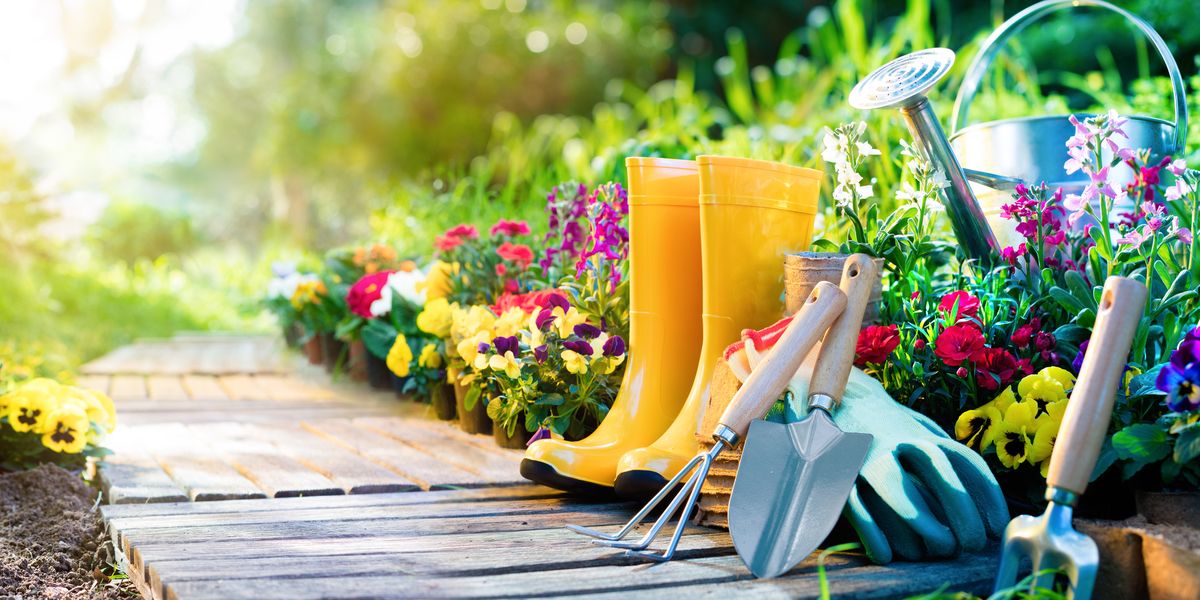Grow into Spring: Newbie Gardening 101 for Expanding a Vibrant Yard Oasis
Wiki Article
From Novice to Eco-friendly Thumb: A Step-by-Step Trip Via the Art of Horticulture

Recognizing Your Horticulture Room
To begin your horticulture journey, it is vital to recognize the distinct attributes and constraints of your gardening space. Take a minute to observe your surroundings. Is your room huge or small? Is it revealed to full sunlight or does it get partial shade? Are there any particular obstacles you may encounter, such as bad dirt top quality or minimal water availability? Understanding these variables will certainly assist you make educated choices regarding the sorts of plants that will certainly thrive in your space.Consider the dimension of your gardening area. You might need to focus on container horticulture or vertical gardening to maximize your growing area if you have a little room. On the various other hand, if you have a large area, you have the deluxe of planting a range of plants and producing different areas within your garden.
Following, evaluate the amount of sunlight your room gets. This will figure out which plants will certainly prosper and which ones may struggle. If your room is shaded, you can go with shade-loving plants like hostas or ferns. If your space gets complete sunlight, you can expand a broad array of plants, including flowers, veggies, and herbs.
Finally, take into consideration any type of limitations or challenges certain to your room. You may need to modify it with garden compost or select plants that are forgiving of less-than-ideal problems if your soil top quality is bad. If water is scarce, you can choose drought-tolerant plants or carry out water-saving methods like mulching.
Picking the Right Plant Kingdoms for Your Garden
Select plants that are appropriate to your garden's special problems and your personal preferences. When selecting plants for your yard, it is essential to think about elements such as sunshine, dirt type, and climate. Some plants choose well-drained soil, while others grow in wet or clay-like soil.It's also worth taking into consideration the maintenance level of the plants you pick. Some plants need more treatment and attention, while others are extra low-maintenance.
Preparing the Dirt for Planting
The majority of plants favor a somewhat acidic to neutral pH, around 6.0 to 7.0. Improperly drained pipes soil can lead to water logged roots and other plant wellness issues. By examining and making required modifications to your soil, you can produce an ideal setting for your plants to flourish.Nurturing and Preserving Your Garden
Make certain to sprinkle your plants deeply, permitting the water to pass through the Recommended Reading dirt and reach the roots. Regular weeding is likewise essential to maintain your yard complimentary from undesirable plants that complete for nutrients and area. Routinely check your plants for any signs of invasion or health problem and content take immediate action to protect against further damages.Troubleshooting Common Gardening Issues
To attend to usual gardening concerns, begin by identifying the issue and taking instant activity. One of one of the most typical concerns gardeners face is insects. You may have a pest problem if you observe chewed fallen leaves or plants that are shriveling for no noticeable factor. Examine your plants carefully for indicators of insects or various other insects. If you spot any type of, eliminate them by hand or use organic bug control techniques. One more typical issue is nutrition shortage. If your plants have actually yellow or stained leaves, they might not be obtaining sufficient nutrients. Take into consideration fertilizing your soil or adding compost to boost its nutrition material. Overwatering is one more issue that can damage your plants. You might be overwatering if you discover water logged soil or wilting despite ample watering. Readjust your watering schedule as necessary and ensure correct water drainage. Lastly, disease can likewise influence your garden. If you see areas, mold, or uncommon development on your plants, maybe a sign of disease. Eliminate influenced plants and treat the staying ones with natural fungicides or pesticides. By promptly dealing with these usual concerns, you can guarantee the health and wellness and success of your yard.Final Thought
Congratulations! You have actually efficiently finished the trip from newbie to green thumb in the art of gardening. By understanding your gardening space, selecting the right plants, preparing the soil, and supporting your yard, you have overcome common horticulture issues like a pro. Currently, link equipped with understanding and experience, you prepare to delight in the elegance and abundance of your prospering garden. Maintain the magnum opus and remain to cultivate your green thumb!
When choosing plants for your yard, it is crucial to take into consideration variables such as sunlight, dirt type, and climate. Some plants prefer well-drained dirt, while others flourish in clay-like or damp soil (newbie gardening). By understanding your horticulture space, choosing the right plants, preparing the soil, and supporting your garden, you have actually gotten over typical horticulture issues like a pro
Report this wiki page